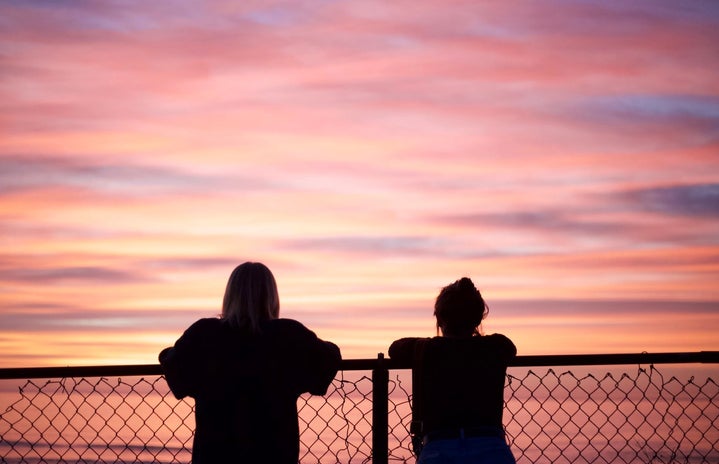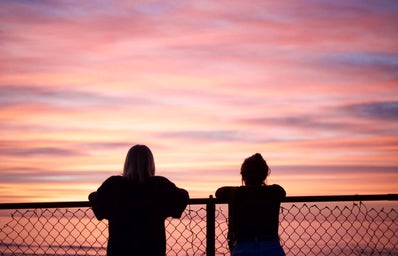The night of March 4, sitting at my desk bleary-eyed after staring at my computer all day, I got an email that said “ATTN: Please Register For Your COVID-19 Vaccine.” Frantically typing to register for a time slot, I had only then realized the perpetual burden that we have collectively been carrying for the past year, and how the consequences will be everlasting.
I walked into the far side of the basketball courts serving as the vaccine site with eagerness and anticipation. Casually chatting with the kind nurses and volunteers, I couldn’t help but think about how grateful I am for science and the immense value of a future career in healthcare. The injection itself was mundane in the best way, but the feelings that excited afterwards spanned further than a small needle prick.
Walking out with a pep in my step clutching a small white card, titled “COVID-19 Vaccine: Moderna, First Dose,” I couldn’t help but feel so grateful, brave and relieved at what the world after the pandemic has to offer. It was beginning to feel like all of this was normal, when I couldn’t imagine a time before Zoom lectures or seeing my best friend’s smile from behind a mask. The vaccine felt like an injection of sunshine days at a crowded park, hearing a stranger’s laugh and a blurry walk home from a night out with friends.
The highlighted effects of COVID-19 have been primarily physical: shortness of breath, fatigue, loss of smell, persistent cough. However, the mental turmoil and emotional deterioration, a phenomenon scientists are coining “Mass Trauma” is an underlooked effect of the pandemic. It’s rare that the world collectively experiences pain, anxiety and loneliness with such unity and with such a fast onset. An article by BBC, written by Ed Prideaux, cites trauma as “a rupture in meaning making.” As humans face collective trauma and begin to lose essential pillars of identification, such as death of a loved one or loss of financial stability, their stress accumulates into trauma and puts the nervous system on high alert. With so many of us being in “survival mode,” focused on basic necessities of shelter and health, we lose the capacity of self-actualization and deep connection with others. The effects of COVID-19 will linger on even after we have tucked away our masks and let the hand sanitizer expire. How do we begin to move on from an event that caused us to lose so many? And, furthermore, how will we change for the better in the future?
As a collective, we still have a long way to go in conquering COVID-19, but believing in science and creating unity is the first step of a long journey. Whenever your turn in the long line of vaccinations arrives, I hope you commend your own bravery and selflessness in the simple act of trusting the unknown. The pandemic has swept the world, consuming our passion for life and depleting our spirits. Brushing our shoulders with death upon each media notification, we’ve highlighted the need to grasp how precious life is and just how quickly it can be taken away.
The nostalgia for meaningful life and barrier-free connection before the pandemic leaves me longing for the experiences that we just can’t replicate over Zoom and FaceTime. I find myself daydreaming about cheering with thousands of strangers in a stadium, strolling through art museums of foreign cities and falling in love with life all over again. I miss the color green in rolling hills and the color pink in blissfully blushing cheeks. I miss the warm gold auras of wonderful friends and the deep blue of crashing ocean waves. I crave the red electric adrenaline of first kisses and infinite adventures. As I replay vivid memories of a life once lived, I hold strength in the truth that this world is a million times more intricate and beautiful than ever imagined, and hold steadfast in the faith that we will live that life once again.


